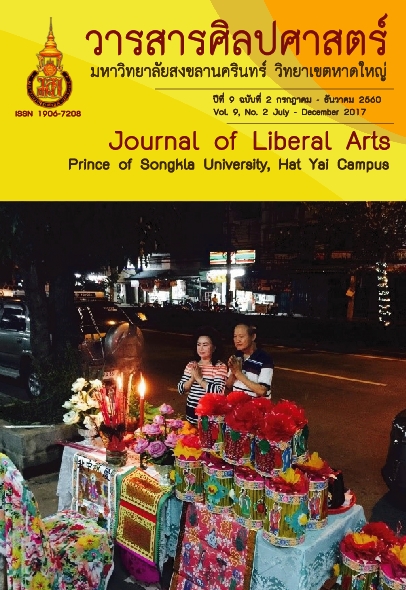The effects of using listening while reading and listening only techniques on high school students’ listening ability
Keywords:
Listening comprehension, listening skills, dual coding theory, cognitive load theory, listening while reading, high school studentsAbstract
Abstract
The purposes of this study were twofold 1) to examine the extent to which the use of listening while reading and listening only approach affected listening abilities of the participants who were exposed to feature news, 2) to investigate factors affecting the participants’ listening abilities. The participants in this study were
sixty-seven Mathayom Suksa 4 students enrolling in a high school in Pattani Province. There were two experimental groups: Listening while reading (n = 37) and listening only (n = 30). Two data collection instruments used in this study were 1) a pre-post and retention tests and 2) semi-structured interview questions. Two types of statistical analyses were computed: descriptive statistics and ANCOVA.
The results were 1) significant differences of pre and post-tests within the two groups were found (F = 60.905, p-value < 0.01) while the differences of pre and post-tests between the groups were insignificant.
2) Significant differences of pre and retention tests within the two groups were found (F = 28.814, p-value < 0.01). It was also found that the pre and retention test scores of the listening while reading group were significantly higher than those of the listening only group (F = 7.600, p-value < 0.01). The interview data revealed that the listening only group preferred single modality input while their counterpart preferred to listen and read separately in order not to ignore one modality while encountering the other. Factors rendering positive listening abilities of the two groups of the participants were group discussions, presentations and exchange of ideas, questioning and analyzing listening input.
Downloads
Published
How to Cite
Issue
Section
License

This work is licensed under a Creative Commons Attribution-NonCommercial-NoDerivatives 4.0 International License.
The authors retain the copyright to their article but the Journal of Liberal Arts, Prince of Songkla University reserves the exclusive rights to first publication.






